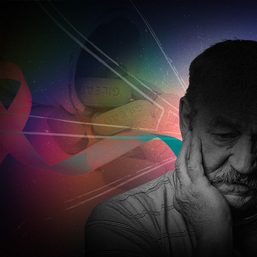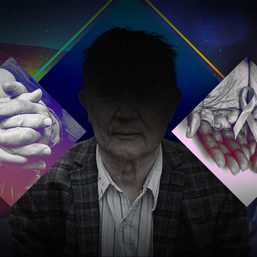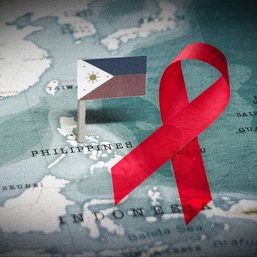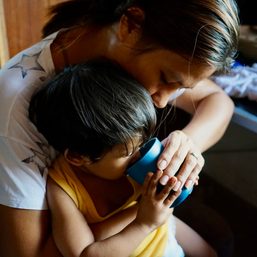SUMMARY
This is AI generated summarization, which may have errors. For context, always refer to the full article.
![[OPINION] History repeats itself: This pandemic hurts our people the most](https://www.rappler.com/tachyon/2020/08/world-strictest-lockdown-august-7-2020.jpg)
Ash – someone I dated years back –slid into my Instagram DM’s one evening.
“You want to have sex next week?”
“Are you trolling me?” I replied with awkward haha’s.
It must be a joke, right?
I mean, in this pandemic?
“Nooope.”
Ash and I have a weird relationship. By that, I mean he didn’t end up in the pile of exes – boyfriends and dates – that I’ve stopped talking to after the breakup.
Our relationship simply fell into that limbo between friendship and love.
The big what if.
But it must be true what they say, that the older you get, the more you want the world to make a little more sense, to be clearer, more clear-cut.
***
On March 15, President Duterte locked down the Philippines.
We’re already 5 months in since the community quarantine was imposed, now the longest and strictest in the world.
I would often joke that my years of being an introvert prepared me for this. That humor is laced with guilt, as I watch my friends sink into depression by the day.
One of them, Rom, messaged:
“My anxiety attacks are coming back.”
“You okay?”
“I was shivering all night. I turned off the lights and tried to sleep just after midnight. I woke up at 5:30.
“I wanted to talk to someone but I also didn’t feel like talking to anyone,” he said. “I think I’m going crazy.”
Rom is this character you could spot blocks away, belying the fact he’s just around 5 feet tall.
That larger-than-life self has been mostly crammed in his 24-square meter unit, scrounging for scraps of human interaction.
He told me that he’d downloaded Grindr again, which he only does whenever he’s vacationing away from Manila.
He said he wanted to check out the other gay guys in his condo.
He ended up talking to someone who told him that he was such a pussy for not consenting to give a blow job – that, for an effeminate guy, he wasn’t in any position to say no. The guy blocked him before he could even snap back.
“You know what I hate the most? I didn’t get the chance to tell him he looked like a pudgy piece of bread.”
***
We now have the highest number of active COVID-19 cases in Southeast Asia, surpassing Indonesia.
Government officials like Harry Roque are pushing the narrative that Filipinos are pasaway – that our stubbornness has caused the hell we’re in.
A survey, though, clearly contradicts his statement, revealing that Filipinos wear masks more frequently than Hongkongers, and are only second to Singapore. Google has also released data which said Filipinos mostly stayed at home after the community quarantine was announced.
Civil society groups are clamoring for mass testing, a solution the government continues to dodge, despite the recommendation from the World Health Organization (WHO):
“The most effective way to prevent infections and save lives is breaking the chains of transmission. And to do that, you must test and isolate.”
***
At the start of the global COVID-19 outbreak, the WHO was the one who adamantly discouraged travel restrictions, stating they wouldn’t work.
Comparisons with travel bans to curb the HIV epidemic have been made, mentioning how ineffective, impractical, costly, harmful, and possibly discriminatory those were.
It reminded me of a time when I served as the head of The Red Whistle, a prominent HIV advocacy organization.
Years back, I got into rows with pearl-clutching conservatives and misguided activists, who argued that to prevent the fast-rising number of HIV cases in the Philippines, we needed to heavily promote abstinence.
That message was supported by the Catholic Church, who couldn’t care less that the biggest victims of this dangerous message were gay and bisexual men, as well as male sex workers.
Instead of risk reduction, they chose this infantilizing message: “Stop having sex.”
Fear. Shame. It wasn’t the first time someone thought of using these to fight the spread of a disease. Knee-jerk, unscientific solutions.
It won’t be the last.
If anything, we’re seeing history repeating itself: a government undersecretary recommended implementing a shame campaign to stop the spread of COVID-19. Meanwhile, a police officer suggested gossiping instead of a well-planned contact tracing program.
It’s already 2020, and yet our strategy to curb the pandemic is a medieval witch hunt.
Minorities like LGBT+ people are disproportionately affected by COVID-19. The United Nations Human Rights Commission notes:
“Lesbian, gay, bisexual, trans and intersex (LGBTI) people may be particularly vulnerable during the COVID-19 pandemic…Homeless persons, a population that includes many LGBTI people, are less able to protect themselves through physical distancing and safe hygiene practices, increasing their exposure to contagion.”
For decades, our legislators have delayed an anti-discrimination bill meant to protect LGBT+ people. Our lives always take a backseat to other, “more important” concerns, such as the ABS-CBN shutdown and the Anti-Terrorism Law.
Human Rights Watch reported how a village official publicly humiliated 3 LGBT+ people who violated the community curfew, forcing them to kiss, dance, and do push-ups on live video.
Meanwhile, 20 LGBT+ protesters were arrested during Pride Month for organizing against the (then) Anti-Terrorism Bill, despite the absence of any law prohibiting them from doing so.
***
I argued with someone that the only reason most developed countries can mitigate the worst effects of COVID-19 is because they have the resources to do so – resources which they took from the countries they colonized and the people they abused.
“Every civilization was built on the back of a disposable workforce,” says a quote from Blade Runner 2049.
But as a Filipino saying goes: bilog ang mundo.
Singapore, then the shining beacon of Southeast Asia for having seemingly stopped the worst of COVID-19’s impact, was hit back by the explosion of cases among migrant workers, people they’ve crammed in overcrowded dormitories, creating hotbeds of disease.
Largely ignored then, that disposable workforce has now come front and center. People can’t help but victim-blame these people, instead of hating the systems that have bred class divides and inequalities which allow disasters like COVID-19 to fester.
Researchers talk about the identifiable victim effect, that strange but all-too-human flaw that makes it easier for us to empathize with a single victim instead of a larger group.
It’s weird how we can save a person, but look away from a whole community.
***
I paused for a bit, thinking about what to reply to the guy I dated.
“Hey…I still think you’re attractive. But I’m seeing someone right now. We’re not in an open relationship.”
He started typing, the ant-trail of dots moving hesitantly.
“Oh! It’s okay. I’m sorry.”
A pause.
“I’m happy for you.”
Another pause.
“Sorry, that was really random.”
He video-called me and continued:
“I wish things were different.”
I assured him: “You’ll always have me, you know?”
“Sometimes I just wonder how things could’ve been different.”
He trailed off.
“I miss you though.”
“I miss you too. Take care of yourself, okay?”
“Call me if you change your mind,” he laughed, and then said before hanging up:
“Be safe.” – Rappler.com
Evan Tan is a writer, communications professional, startup founder, and LGBT advocate based in Manila.
Add a comment
How does this make you feel?

![[PANOORIN] May ‘silent epidemic’ sa Pilipinas?](https://www.rappler.com/tachyon/2023/12/silent-epidemic-dec-7-2023.jpg?resize=257%2C257&crop_strategy=attention)









There are no comments yet. Add your comment to start the conversation.